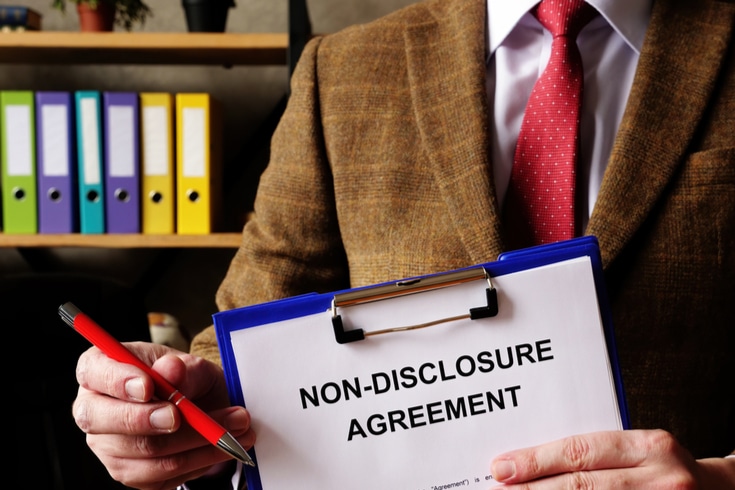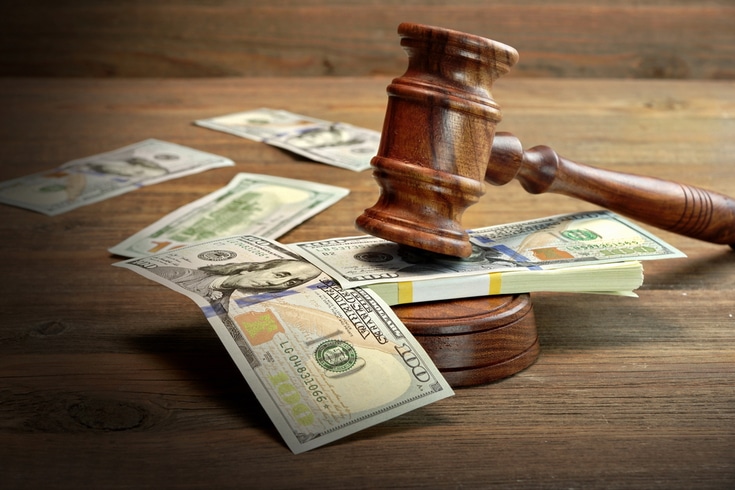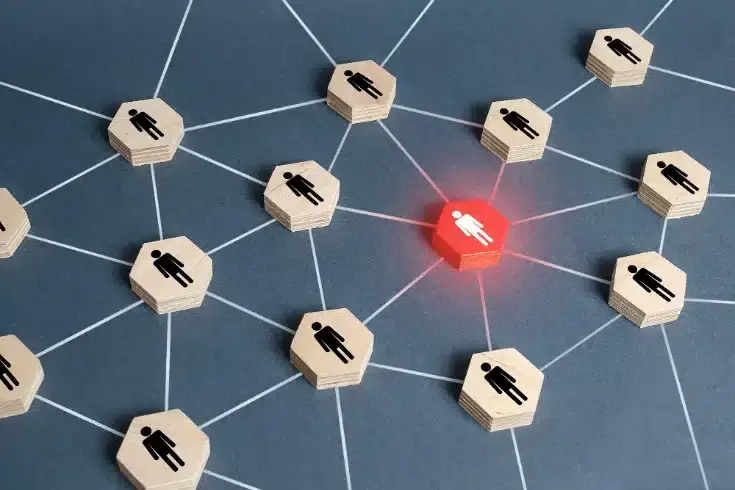Developing Your Own Business with 'Confidential Information' After Signing an NDA: Explaining the Legal Risks

A Non-Disclosure Agreement (NDA) is essential when starting a new transaction with another company. The NDA obligates you to use the confidential information disclosed by the other party within the scope of the specified purpose.
However, after concluding the NDA, you may want to conduct your own business based on the confidential information disclosed by the other party due to certain circumstances. Using such confidential information violates the NDA, so it’s important to understand the legal risks involved.
Therefore, we will explain what legal risks should be anticipated, and the nature and extent of these risks.
Prohibition of Use Outside the Purpose of a Non-Disclosure Agreement (NDA)
In NDAs, it is common to have provisions that prohibit the use of confidential information disclosed by the other party for purposes other than those specified, as in the following clause example.
Party A and Party B shall not use the confidential information disclosed by the other party for any purpose other than the consideration of business collaboration between Party A and Party B.
From the perspective of the disclosing party, the information is important for their business. Therefore, they naturally do not expect the information disclosed to be used for purposes other than those specified in the NDA. If the disclosed confidential information is of a nature that relates to the core of the disclosing party’s business, there is a risk of fatal damage if the information leaks to rival companies. For this reason, prohibitions on use outside the purpose, as in the above clause example, are stipulated in NDAs.
If the party receiving the disclosure uses or leaks the information for purposes other than those specified in the NDA, they are responsible for compensating the damage caused to the disclosing party. Provisions regarding liability for damages are typically set out in NDAs as follows.
If Party A and Party B cause damage to the other party by disclosing or leaking the other party’s confidential information without the prior written consent of the other party, the other party may claim compensation for the damage from Party A and Party B.
It should be noted that some NDAs may limit the scope of liability for damages. For example, there may be cases where a certain amount is predetermined in the NDA as the amount of damage compensation, or where the scope of damage compensation is limited to normal damages, excluding damages arising from special circumstances, indirect damages, lost profits, etc.
For other clause examples of non-disclosure agreements, please refer to the detailed explanation in the following article.
https://monolith.law/corporate/checkpoints-nondisclosure-agreement[ja]
Risks of Using Confidential Information for Your Own Business

What risks might you face if you use the other party’s confidential information for purposes other than those specified in the NDA? The risks that can be anticipated are as follows:
- Injunction against the service
- Claims for damages
- Costs for dealing with 1 and 2, such as attorney’s fees
Of these, the main points are considered to be 1 and 2. For 1 and 2, there are two responsibilities: one based on the breach of the NDA itself, and the other based on the violation of the Unfair Competition Prevention Act (Japanese Unfair Competition Prevention Act).
Liability Based on Breach of the NDA Itself
If you use the other party’s information that falls under the confidential information stipulated in the NDA for your own business, you will violate the clause prohibiting the use of confidential information for purposes other than those specified in the NDA. Therefore, in theory, you will be liable for damages due to breach of contract. In addition, the other party may also request an injunction against the service that used the confidential information.
Liability Based on Violation of the Unfair Competition Prevention Act
If you use the confidential information disclosed by the trading partner without permission for purposes other than those specified, the act may be deemed to fall under the unfair competition act stipulated in Article 2, Paragraph 7 of the Unfair Competition Prevention Act. Article 2, Paragraph 7 of the Act defines an act of “using or disclosing trade secrets for the purpose of obtaining unfair profits or causing damage to the holder of the trade secrets” as “unfair competition”.
Article 3 of the Unfair Competition Prevention Act states that “if business profits are infringed or are likely to be infringed by unfair competition, an injunction against the act can be requested”. In addition, Article 4 of the Act states that if a person infringes on the business profits of another person by intentionally or negligently engaging in unfair competition, the person can claim compensation for the damages caused by this.
Risk Level of Misuse of Confidential Information

Burden of Proof in Civil Litigation
If confidential information is used for purposes other than intended, theoretically, as mentioned earlier, there is a risk of being liable for damages or being subject to an injunction to stop the service. However, it is important to note that in order for these claims to be recognized by the court, the party claiming that the confidential information was used for purposes other than intended must assert and prove the facts that meet the requirements of the claim.
In civil litigation, even if the misuse of confidential information is true, the court cannot recognize the claim unless the party seeking damages or an injunction can provide evidence to support it.
Risks of Breaching the NDA Itself
When claiming damages for misuse of confidential information, the claimant must prove the amount of damage. The amount of damage in this case is the damage suffered by the other party due to the misuse of confidential information, that is, the profit that the other party would have made if there had been no misuse.
However, in reality, it is not easy to assert and prove that “if there had been no misuse, the other party would have made more profit than now”. Therefore, even if the fact of misuse is recognized by the court, there is a high possibility that the claim for damages will not be recognized or will be very small if the proof of the amount of damage fails.
Moreover, it is not so easy to prove that the party who received the disclosure of confidential information used the information for purposes other than intended. Even if the other party starts a service that may use the information after disclosing the confidential information based on the NDA, it is usually difficult to conclude that the party who received the disclosure used the confidential information for purposes other than intended. This is because it cannot exclude the possibility that similar information was received through a route other than the information disclosure based on the NDA.
Therefore, the possibility of being recognized for damages or an injunction due to a breach of the NDA is not so high, and the legal risk that is actually borne by the misuse of confidential information is not so large.
Risks of Violating the Unfair Competition Prevention Act
In order to claim damages or an injunction for violation of the Unfair Competition Prevention Act, the party making the claim must prove that the confidential information misused falls under the “trade secret” under the Unfair Competition Prevention Act.
A “trade secret” is defined as technical or business information useful for business activities that is managed as a secret and is not publicly known (Article 6 of the Unfair Competition Prevention Act). Breaking down this definition, in order to be considered a trade secret under the Unfair Competition Prevention Act, the following requirements must be met:
- Usefulness
- Secret management
- Non-public knowledge
Usefulness means that the information itself is objectively used in business activities or is useful for saving expenses and improving business efficiency by being used. Non-public knowledge means that it cannot be obtained generally except under the control of the holder.
What is particularly difficult to prove is secret management. In order to meet the requirements of secret management, the company that holds the trade secret must clearly show to its employees and others through measures to manage the information as a secret that it intends to manage the information as a secret, and the possibility of employees and others recognizing the intention to manage the information as a secret must be ensured.
Specifically, it is necessary to take measures to limit who can access the information in the company and to clearly indicate that it is a secret by means such as marking documents as confidential. However, in reality, many companies on the disclosing side do not take such measures sufficiently, so it is said that it is difficult to prove that it is a “trade secret” under the Unfair Competition Prevention Act.
From the above, it can be said that the legal risk that a company that misused confidential information due to a violation of the Unfair Competition Prevention Act bears is not so large. For court cases where it was disputed whether it falls under the “trade secret” under the Unfair Competition Prevention Act, we explain in detail in the following article.
https://monolith.law/corporate/trade-secrets-unfair-competition-prevention-act2[ja]
Summary
Using confidential information for purposes other than those stipulated in a Non-Disclosure Agreement (NDA) is a clear breach of contract, so it’s not to say that there are no legal risks involved. However, in reality, due to the difficulty of proof, the risk of facing damage claims based on contract violations or injunction requests based on the Japanese Unfair Competition Prevention Act is not particularly high. While it is crucial to sign an NDA when disclosing confidential information, it is also important to understand its effects. We recommend consulting with a specialist lawyer and seeking their advice.
Contract Creation and Review Services by Our Firm
At Monolis Law Firm, we leverage our strengths in IT, Internet, and business law to provide a wide range of services to our clients and advisory companies. These services include not only the creation and review of confidentiality agreements, but also various other contracts.
If you are interested, please see the details below.





















